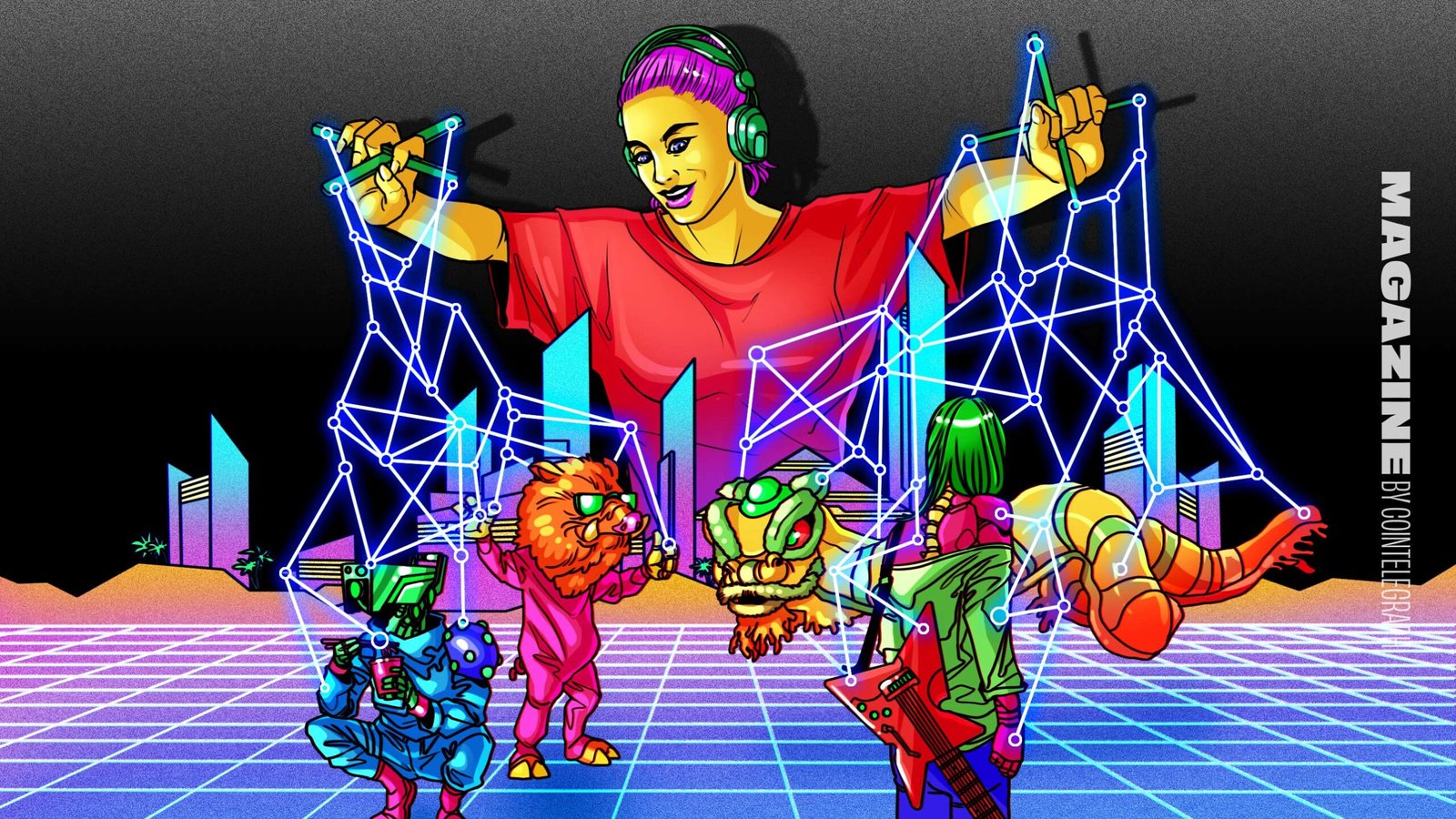[ad_1]
Shaking is fraud: Sweat Economy founder
Sweatcoin (SWEAT) is the token of the Sweat Economy, a move-to-earn (M2E) crypto application with 155 million users. The app pays out SWEAT for simply getting off your butt and moving.
And all you gotta do to earn the token is let the phone in your pocket track your steps.

Seems like everyone has had the same idea… What if I stay on the couch and just shake the phone for hours?
Well, unfortunately for the slackers, Sweat Economy founder Oleg Fomenko tells Web3 Gamer that unlike traditional pedometers, it’s quite challenging to deceive the Sweat ecosystem.
“A lot of people do that, but of course they don’t earn, because that’s the first thing that we fixed,” Fomenko declares.
“If you could shake Sweatcoins into existence, that immediately gives you an immense amount of doubt that this can ever be a sustainable or interesting platform to use.”
In fact the project has an entire department dedicated to catching out phone shakers and SWEAT fakers.
“It’s our fraud detection department. In a bank that would be about financial transactions, in our world that would be about verifying physical activity.”
But, he says, people don’t realize straight away so they waste a lot of time fake exercising, only to find there’s not a pay cheque at the end of it.
“People get excited when they see their phone is being tricked into counting steps, expecting to be rewarded. But when they don’t, they have choices to make. Either, fuck it, I’m off, or, they realize this problem has been solved and Sweatcoins actually have value,” he explains.
“People start to realize that people who are above them on that leaderboard, they do walk. It is not some fake physical activity. It becomes real, and the token becomes valuable,” Fomenko says.
The Sweat Economy team seems dedicated to preserving the value of its token. They’re also diligently tracking inactive tokens and brainstorming ways to revive them.

In June 2023, Cointelegraph reported that the Sweat Economy DAO voted in favor of repurposing over 2 billion SWEAT tokens that were locked up in inactive user wallets after an airdrop in September 2022.
(If you’re still up for making some crypto by shaking your phone, check out ShakePay. They’ve got an option where you can open the app and start shaking your phone to earn some crypto.)
How does the Sweat Economy get paid?
If you’re like me, you’re probably wondering, what does the project get out of it and why are they paying me crypto to walk?
Well, it turns out physical data is super lucrative, so you don’t need to worry about Fomenko and the team paying rent anytime soon.
Read also
Features
US enforcement agencies are turning up the heat on crypto-related crime
Features
Crazy outcomes when current laws applied to NFTs and the metaverse
Fomenko explained that back in March 2021, when COVID-19 lockdowns were starting to hit worldwide, they noticed a whopping 85% drop in physical activity.
That kind of decline, he said, directly translates to extra healthcare expenses, weight gain, and other health issues across the board.
“This type of info is extremely valuable, which is why we have partnerships with major corporations like the National Health Service in the U.K., who pay us,” he says.
Sweat Economy also takes a commission on each transaction within the ecosystem of the Sweat token. The token is available on popular exchanges such as OKX and Crypto.com.
It’s become a popular trend in recent times for people to chase crypto for doing their daily steps, with other apps out there offering similar rewards too, like Stepn, MetaGym, Dotmoovs, Calorun and Run Together.
According to CoinMarketCap, Sweatcoin’s price stands at $0.0107, with a 24-hour trading volume of $5.86 million.
Traditional gaming giants will never be leaders: WAX chief gaming officer
“Traditional gaming companies will just be followers; they won’t be leaders because they don’t have to be leaders,” opines Michael Rubinelli, chief gaming officer of Web3 game developer WAX studios, the gaming division of the WAX blockchain.
There’s a lot of interest in when or if big game companies like Activision will start using NFTs and blockchain, but Rubinelli doubts they’ll do anything big right away. It’s easier for them to let smaller companies make mistakes before they join in.
“Somebody else will show them how to build a Web3 game, how to have that economic structure so both sides win,” he tells Web3 Gamer.
🌉 Bridging Worlds: Introducing the New WAX NFT & Token Bridge!
Last week we launched our updated WAX #NFT & Token Bridge, featuring improved UI & UX. This upgrade enables effortless transfers of #NFTs & tokens across multiple blockchains, heralding a new phase for the WAX… pic.twitter.com/8C6TJrouM8
— WAX (@WAX_io) February 13, 2024
Rubinelli has two decades of experience in traditional gaming, serving as the senior vice president of studio operations at Disney and the general manager of Core Studios at Kixeye before becoming the CEO of Esports Mogul.
Now, he spearheads game development at WAX studios, overseeing the creation of popular hits like the Web3 wrestling game Blockchain Brawlers and the play-to-earn music tycoon game Music Mogul.
That background lends weight to his opinion that the risk-reward ratio of dabbling with NFT and digital ownership just isn’t viable for traditional gaming executives right now.
“Business model transitions are hard; they are extinction events. If you do try to do it and fail, you’ll lose your job,” Rubinelli states.
“They say in psychology the biggest motivator is fear of loss — you want it to be hope for gain, but it’s not,” he adds.
“The thing no one wants to talk about, no big publisher wants to extol the benefits of NFT and token ownership, they just don’t.”
Back in November 2022, gaming giant Rockstar Games banned crypto and NFTs on its roleplay servers for Grand Theft Auto and Red Dead Online. Around the same time, Minecraft made it crystal clear that there would be no NFT support in the game anytime soon. Earlier in 2022, Mike Ybabba, president of Blizzard Entertainment, shot down an X user who stated that Blizzard was “polling interest in NFTs.”
Rubinelli says that rocking the boat of an operation racking in billions isn’t exactly advantageous for the big gaming giants.
He’s feeling pretty hopeful that what’s on the horizon this year in terms of new releases will make some of the current top hits in blockchain gaming seem outdated within the next twelve months. He notes AAA first-person extraction shooter Shrapnel as one he is particularly looking forward to.
“Axie Infinities, The Sandboxes, Crypto Kitties, those things are going to get dated so quickly, I would think by the end of the year.”
Hot take: MotoDEX
When it comes to racing games, the more cartoony, the better, I say.
While Forza Motorsport and Formula 1 are getting more and more realistic, there’s just something about racing with wacky, larger-than-life cartoon vehicles on tiny tracks that’s always entertaining — maybe that’s why Mario Kart is still such a hit.
The NFT motorcycle game MotoDex is exactly that. It’s simple, and you get to pick which blockchain you want to use — Near, Polygon, or Aurora.

In the game, you earn coins that you can use to buy and sell NFTs on the OpenSea NFT marketplace. But there are plenty of other ways to rake in the cash in the app, too—you can own tracks, and track owners get coins from tournaments held on their tracks.
The races aren’t your standard ones—they’ve got more of a Nintendo Wii vibe but on your phone.
Being an obstacle assault course, there is tons of stuff to dodge, and the goal is to finish the race in as little time as possible. Things get a bit chaotic on the track, with forklifts and swinging objects appearing out of nowhere.
Read also
Features
Blockchain games aren’t really decentralized… but that’s about to change
Features
Unforgettable: How Blockchain Will Fundamentally Change the Human Experience
This means it is one of those slightly frustrating games that’ll probably keep you playing much longer than you should.
It’s the kind of game where you’ll say, “Just one more time,” — you know, like Temple Run, Jetpack Joyride or Subway Surfers.
While the game’s layout is pretty simple, nothing too fancy in terms of graphics, it still has you kind of hooked. I mean, I don’t think it’s aiming for any graphics awards either. It’s just a bobblehead character on a motorbike with a head twice as big as the bike.

God Unchained Roadmap for 2024
Digital trading card game Gods Unchained has been keeping gamers on their toes with updates ever since it dropped its beta almost five years ago.
On Valentine’s Day, God Unchained released its roadmap for the game for 2024.
🗺️ GODS UNCHAINED 2024 ROADMAP 🗺️
Winds of Change are blowing in the Eucos:
📱 Mobile Release: Battle anywhere, anytime🚀 New Expansions: Anticipation and dread fill the air with new cards & mechanics💎 Mythic Variants: Special cards for true collectors. Will they choose you?… pic.twitter.com/2SdXRE43CQ
— Gods Unchained (@GodsUnchained) February 13, 2024
According to the plan, they’re redoing the server logic to boost performance and fix tech glitches. They will also add more game modes and improve the progression system.
They also announced that its mobile version of the game will be launching soon.
“Get ready to scale the ranks on the go as you leave your opponents weeping on their toilet bowls, making a scene on a train or bus, or ignoring the pleas of their young child asking for another story (please don’t do that). It’s your call.”
Other News
— Ethereum layer-2 blockchain Lightlink gaming plugin Bolt hits 2.5 million NFTs minted with partner projects Grapes and TallyUP!
— Epic Games backs blockchain-based first-person shooter Exverse with $3 million in funding.
— Crypto exchange OKX has integrated its wallet app with GameFi platform CoinArcade, enabling in-game BTC tokens and NFTs.
— NFT gaming platform PlayDapp was hacked on two occasions this month, leading to a loss of $300 million PLA tokens, according to blockchain security firm Elliptic.
Subscribe
The most engaging reads in blockchain. Delivered once a
week.


Ciaran Lyons
Ciaran Lyons is an Australian crypto journalist. He’s also a standup comedian and has been a radio and TV presenter on Triple J, SBS and The Project.
[ad_2]
Source link

